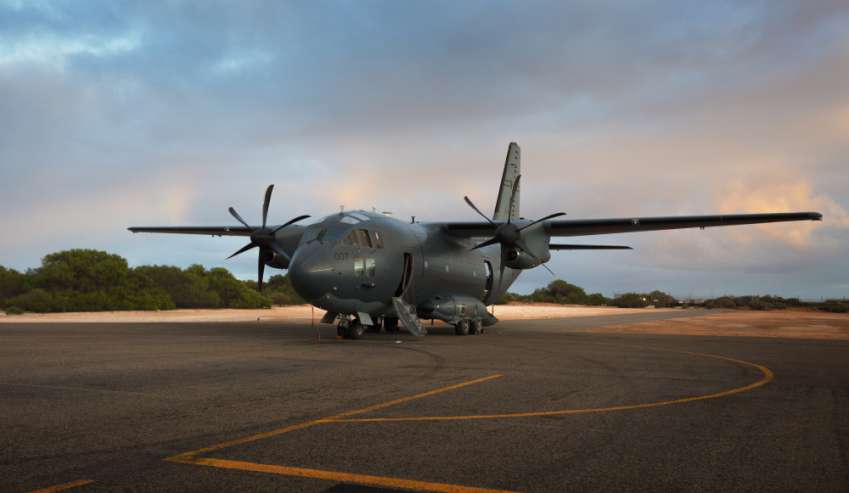Despite recent revelations regarding the survivability of the Royal Australian Air Force’s C-27J Spartan airlifters, the platform has successfully displayed many airborne operations capabilities on Exercise Ready Spartan Prove (RSP).
To continue reading the rest of this article, please log in.
Create free account to get unlimited news articles and more!
Conducted from RAAF Base Townsville from 10-18 September, No. 35 Squadron and No. 383 Squadron trained at local austere airfields to practise operational integration.
This included establishing deployed air-base infrastructure at the Benning and Macrossan Airfields, about 100 kilometres inland in regional north Queensland.
Squadron Leader Justin Della Bosca, B Flight Commander at No. 35 Squadron and Exercise Commander, said the exercise tested both squadrons' abilities to integrate with the battle rhythm, information structure and planning products typical of a combined air operation.
“The C-27J is well known for its humanitarian aid and disaster relief efforts. RSP is a ‘home grown’ exercise, planned by No. 35 Squadron members with No. 383 Squadron to demonstrate that the aircraft, aircrew and support teams are prepared to respond to the full spectrum of government-directed tasks in future,” SQNLDR Della Bosca explained.
Search, Evade, Resist and Escape (SERE) drills were also completed to test evasive action plans, enabling joint personnel recovery training to enable combined air operations.
SQNLDR Della Bosca added, “The crews are wearing body armour and carrying personal weapons while flying and performing realistic pre-mission tactics briefings.
“This week we have seen self-protection countermeasures loaded into the C-27J by No. 35 Squadron’s maintenance teams and their subsequent use in the air, the carriage of a G-wagon and combat offloads conducted to prove deployability, and improve interoperability between expeditionary combat support and tactical air mobility elements.
“The C-27J has the unique ability to land on short remote runways, allowing access to these regional areas in north Queensland where other aircraft may not be able to reach.”
The C-27J Spartan complements the Australian Defence Force's existing air mobility fleet.
Its capabilities bridge the gap between Army helicopters, such as the CH-47F Chinook, and larger Air Force aircraft, such as the C-130J Hercules and C-17A Globemaster III.
The Spartan will provide airlift of people, equipment and supplies in Australia and our region. It can operate from unsurfaced airstrips, and support humanitarian missions in remote locations.
Much like the Hercules and Globemaster, the C-27J Spartan can:
- Airdrop cargo and paratroops in-flight;
- Airlift a variety of cargo loads; and
- Conduct aeromedical evacuation of sick or wounded personnel.
The first Spartan arrived in Australia in 2015 and the fleet of 10 Spartans, operated by No. 35 Squadron, are based in RAAF Base Amberley.

 Login
Login







